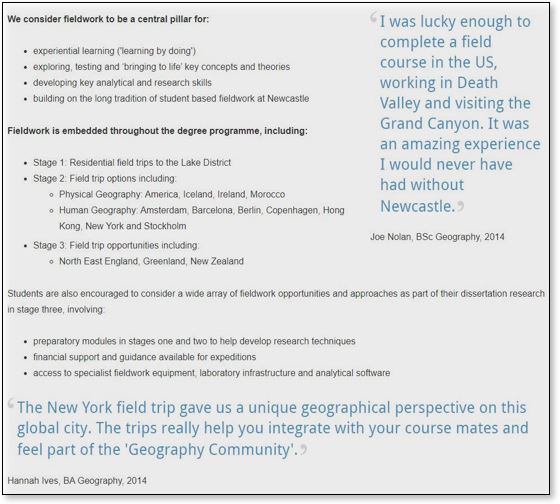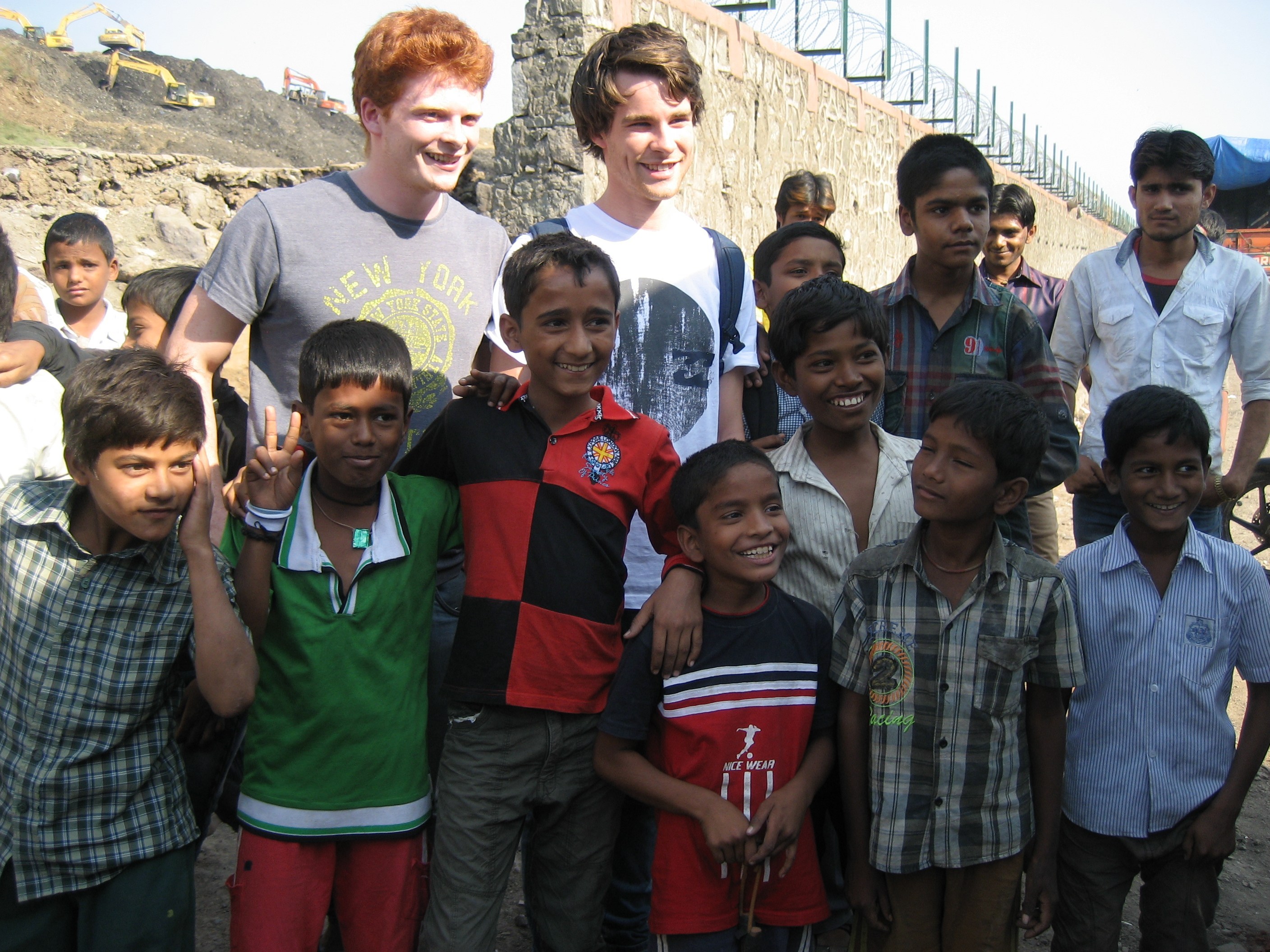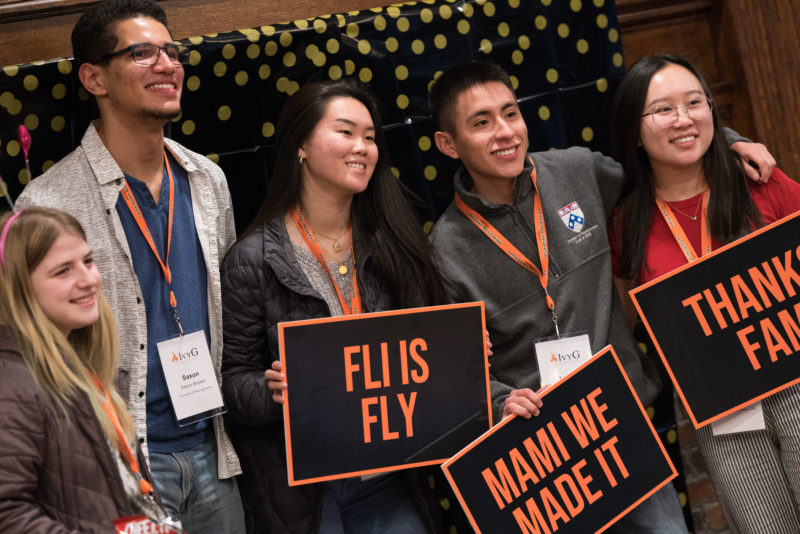Sought after by students, highly regarded by academics and promoted by universities, field trips and field work are lauded as good practice in higher education. But there is a flip side – unequal opportunity, unsustainable environment costs and colonial legacies. Branwen Spector takes a closer look
Fieldwork and field trips are often thought of as integral and exciting parts of academic training – a luxury afforded to us in exchange for the hours of reading, writing, exams or admin. However, while academics have begun to interrogate the necessity of travel for conferences and meetings, the issue of field trips and fieldwork must too be placed under the same scrutiny. I spoke to a range of scholars and students about the idea that fieldwork and field trips may be a superfluous practice in relation to their environmental and social cost. These trips are increasingly incorporated into both undergraduate and postgraduate programmes of study, and fieldwork continues to be expected of numerous scholars, yet the environmental cost and the potential of being seen, at best, as a superficial means of interpreting a foreign culture or place; and at worst, as a form of poverty tourism render them controversial in the face of the current global struggles to decolonise universities and fight climate change – movements very much taking place within the academic sphere.
Importance of field trips and fieldwork
While fieldwork tends to be longer-term research projects carried out by students or researchers, field trips are short excursions and study trips for students. In recent years, universities have begun integrating field trips into their undergraduate and Master’s programmes and courses at a curricular level with it becoming compulsory on a number of programmes. Several development, anthropology, geography, sociology, international relations and management departments t require students to undertake overseas field trips and expeditions as a compulsory part of their programmes and courses.
 Fieldwork is a central pillar at Newcastle*
Fieldwork is a central pillar at Newcastle*
Student field trips serve both an educational and social function. When funded by the department in question, these trips offer socioeconomically disadvantaged students, who could otherwise not afford them, the opportunity to travel and gain useful experience of what it means to conduct research in the field as well as learning about different walks of life.
These trips are also used as a recruitment tool to attract students to universities. In geography programmes in the UK, where field trips are a requirement, Thomas Smith, a geographer at the LSE, notes that there is an “arms race in geography departments to provide the most ‘exotic destinations’ for field trips,” with students shopping around for the best option. The LSE Masters in International Development and Humanitarian Emergencies programme has an optional trip to Geneva for all its participants to meet with staff from UNHCR; Queen Mary’s Geography Department offers a 10-day trip to Las Vegas and Los Angeles for second- and third-year undergraduates; the Urban and Regional Planning programme of the Queensland University of Technology (QUT), Brisbane offers trips to Malaysia, Korea, and Turkey; and the Nanyang Technical University of Singapore’s Asian School of the Environment offers trips to Bali, Sri Lanka and California. A student on the Masters in Management programme at the LSE explained how he and his cohort expected an international field trip in exchange for the high and increasing cost of a Master’s programme in the UK, and the destinations offered informed their choice of programme.
Fieldwork, however, is a sensitive issue: it is something on which academics come to market themselves, especially within disciplines based on long-term fieldwork such as anthropology or development. In these fields, researchers face immense pressure to go to increasingly ‘distant’ and ‘exotic’ locales, and conversations around the environmental impact and necessity of these trips are rare. But at a higher level, when fieldwork trips occur for shorter time periods due to personal constraints, how can we justify these trips?
Environmental cost
Like many other professions, academics are beginning to wake up to the cost of their work-related travel and to think about alternatives. While some students are attracted to the promise and opportunity of subsidised international travel, there is also a new generation of climate-conscious students who question the necessity of these trips. Exeter University’s Geography Department, for example, offers its students a choice between local or international field trips, with intentions to eventually phase out all long-haul trips.
However, the alternatives to long-haul travel are more complex than they seem. Some staff pointed out that the prohibitive costs of accommodation for students in the UK make international trips cheaper. Others argue that for those students studying development-related fields, they need to be in developing countries to fully understand the issues they study. David Elliot, a geographer at Leeds devised an equation that measured carbon emissions versus the learning outcomes of a trip to determine their worth and how to offset their emissions, but this equation assumes that the learning outcomes for each student are the same, as Thomas Smith pointed out.
Smith argued that students with the lowest carbon footprint are likely to gain the greatest benefit from university-subsidised travel, as they are likely to come from lower-income backgrounds and have travelled less in their lives. University-subsidised travel, he says, provides them with new experiences of travel that they would otherwise be unable to afford, and thus makes field trips an important issue of inclusion in higher education.
"students with the lowest carbon footprint are likely to gain the greatest benefit from university-subsidised travel"
Superficial engagement
Scholars organising student field trips host training sessions for students before and during the trips to reinforce ideas about respecting local cultures, listening sensitively to different life experiences, and engaging reflexively with local communities. However, given that many student field trips often last less than 10 days, how much understanding can be gained? In a study of field trips organised by QUT, Tan Yigitcanlar reported that several students felt that the trips were not long enough, and that there was not “enough contact time with local professionals … (who could) provide students with an opportunity to engage with a wide range of discussion and in-depth analysis.” On the other hand, Princeton undergraduates taking part in a semester-long trip to Mpala, Kenya, were advised in their packing guidance that “working in the field in Africa means being in a state of perpetual dirtiness,” suggesting that superficial involvement with local cultures can also come from institutional organisation despite the length of the trip. Ultimately, it seems that both the length and intent of trip and prevailing (mis)conceptions and prejudices could reinforce rather than dispel harmful cultural stereotypes.
Staff are often resistant to the idea that their trips for students could be a form of poverty tourism, though the outcomes of such short engagements with radically different people and places can, of course, result in “eye-opening” and “life-changing” experiences for the privileged student visiting the subject population. These experiences, as Nisbett discusses, can result in a sense of moral superiority and a lack of genuine understanding of the underlying structural and political causes around the poverty witnessed. Of course, no academic wants to think they are guilty of superficial engagement with the culture or place they study, and instructors on field trips often stressed the social function of such trips for students involved.
 Students on a field trip pose with local children at a Mumbai landfill*
Students on a field trip pose with local children at a Mumbai landfill*
Social function
While numerous academics and students acknowledge the privilege afforded to students to go on fieldwork and field trips, they also admit that participants have regarded and treated them like a free holiday. An instructor in the LSE Geography Department acknowledged that it was hard to get students to focus on the reflexive elements of learning while in the field as they often just wanted to have fun. However, the same instructor defended this mentality, stating that students at her university lacked a prom or similar end-of-year departmental celebration, so the trips were an important opportunity for them to bond. A postgraduate studying management concurred: the trip organised by his programme to a European capital to meet business owners held little academic value, but was seen as an important opportunity for cohort-bonding.
Academic prestige factor
International students also pointed out the necessity of travel for their inclusion in elite academic environments. “Based in the ‘centre of empire,’” as Valentina Zagaria, a PhD candidate in LSE’s Anthropology Department put it, “scholars in the UK are privileged with being proximate to important events, conferences and spheres of networking that our colleagues from further afield have to fly in to attend in order to boost their esteem in the eyes of Western universities; their carbon footprint is attached to real professional necessity.” In addition, the expectations upon academics to be mobile assumes that we are physically able, financially capable and willing. The more we incorporate this attitude into undergraduate and postgraduate programmes, the more we impress upon our students the idea that international travel is linked to success.
Some field trips have reciprocal trips by host organisations integrated into their structures, allowing for longer periods of contact between participants and greater development of learning outcomes and key themes incorporated into the trips. In the QUT study, members of hosting universities were invited to attend the final presentations of students in Brisbane, but were unable to make it due to “time and financial constraints.” Perhaps for truly socially engaged projects, financing trips should include budgets for maintaining longer and more sustainable links with colleagues and cohorts in both hosting and visiting institutions.
The site of knowledge production
Academics whose research is based in locales away from their workplaces depend on the opportunity to travel and conduct fieldwork to further their careers. The opportunity to share this expertise with students is an important and exciting aspect of higher education. In addition, the further decolonisation of knowledge and university curricula depends on increased collaboration and attention to international scholarly work. Field trips and fieldwork cannot be simply written out of future academic practice, however we must think carefully about what the epistemological purpose of such travel is.
Academics are often judged on the ‘exotic’ factor of their research, with disciplines such as anthropology and development studies often placing greater value on research conducted in ‘difficult’ and ‘remote’ regions. In addition, as most fieldwork is funded by research grants that academics must compete for, research conducted far from home is increasingly valued and allows scholars and students to set themselves apart from each other in the academic labour market.
Many post-doctoral research grants are based on the idea that one can conduct fieldwork or collaborative research projects by flying in and out of a country in a few days or weeks – something that some academics have called into question in terms of its actual impact and in fostering equal relations between visiting and host academics. Moreover, this is not a privilege accorded to all scholars from the global south. As Portia Roelofs, a research fellow at Oxford, points out, 41 African scholars were denied visas by the UK government to speak at the African Studies Association conference in Birmingham in 2018.
Thinking about change
Many academics I spoke with agreed that institutions must take responsibility for addressing the climate crisis. It was suggested that departments set guidelines for how travel budgets should be spent and where money should be invested – using local contacts and avoiding international corporations such as Uber and Airbnb, and requiring a percentage of budgets be reinvested in local populations and capacity-building. Universities can also commit to greater transparency on carbon emissions – it is usually the air travel of staff and international students that are the biggest producers of carbon emissions. Declaring this and collectively devising incentives for staff and students to travel less can reduce institutional carbon footprints. Some departments advertise a department-specific climate policy on their websites such as the LSE Department of International Development which stipulates that they are reducing the number of flights department staff take every year and instead using LSE’s videoconferencing technology where feasible.
Universities can also encourage academics to think creatively about how remote fieldwork can be conducted. Erica Pani, an economic geographer at the LSE, explained how by downloading video and audio content on to their phones, her students could stay in London and simulate simultaneous experiences in Dar-es-Salaam, where she conducted her fieldwork. This initiative demonstrates innovative ways in which we can use technology to reduce staff and student carbon footprints for education purposes, much like the success achieved at nearly carbon-neutral, feral academic conferences.
Many academics support the rethinking of travel budgets, suggesting that universities take steps to encourage overland travel wherever possible. Some even suggested that justification for air travel should be required when reclaiming travel expenses. Many companies offer climate perks, initiatives like extra time off or increased stipends for opting to travel overland rather than fly, something not currently offered by any UK universities for their staff. Overland travel, however, requires a greater restructuring of our conception of travel that includes greater flexibility and longer, more impactful trips. This kind of travel also depends on academic and student health, gender, safety and caring commitments.
Universities like the LSE have the influence within the UK universities sector to change the ways in which these trips are made, calling for longer and more meaningful visits, and reassessing ways in which research is collaborative. In other words, as Roelofs puts out, “every generation of scholars has to renegotiate what the dream of academic success looks like” – isn’t it time we started renegotiating ours?
The Good News
Doing away with field trips and fieldwork is not the solution; but we can adopt a more socially responsible and environmentally sustainable approach:
- Offer a choice between local and international field trips, reducing the number of long-haul trips
- Replace field trips and field work with technology and virtual conferencing where feasible
- Provide debriefs and workshops to counter the development or persistence of harmful cultural stereotypes before, during and after field trips
- Arrange reciprocal visits from host institutions and provide financial and visa assistance
- Prioritise long-haul travel for students and staff with low-carbon footprints
- Urge academic departments to incentivise carbon-neutral learning initiatives
- Calculate the true costs of international trips and ensure that the benefits significantly outweigh the costs
___________________________________________________________________________________________________________________________________________________________________________________________________________________________________________________________________________
This post is opinion-based and does not reflect the views of the London School of Economics and Political Science or any of its constituent departments and divisions.
_____________________________________________________________________________________________________________________________________________________________________________________________________________________________________________________________________________
*Image information
Main image: Students on a field trip pose with local children at a Mumbai landfill
Fieldwork is a central pillar at Newcastle




